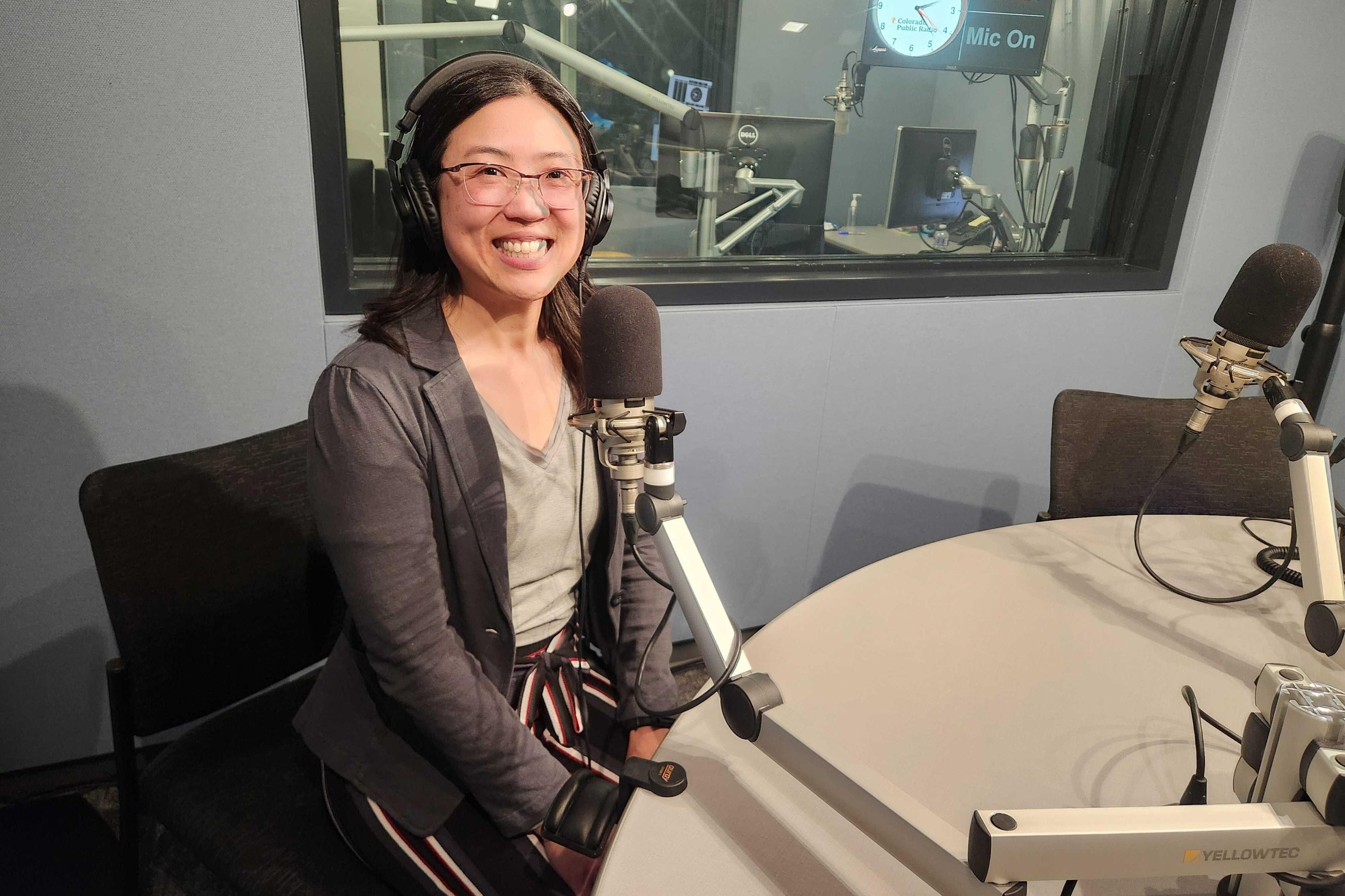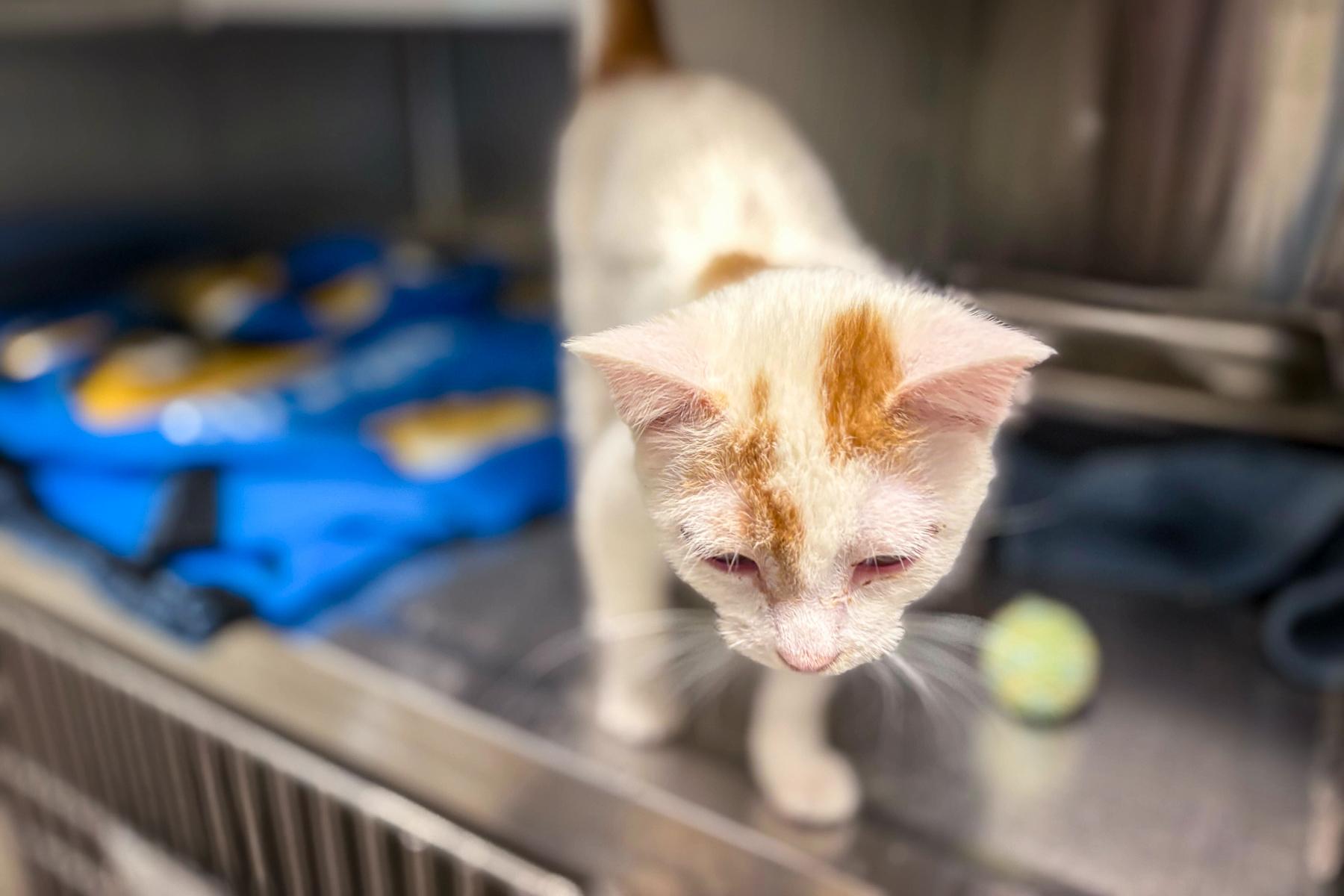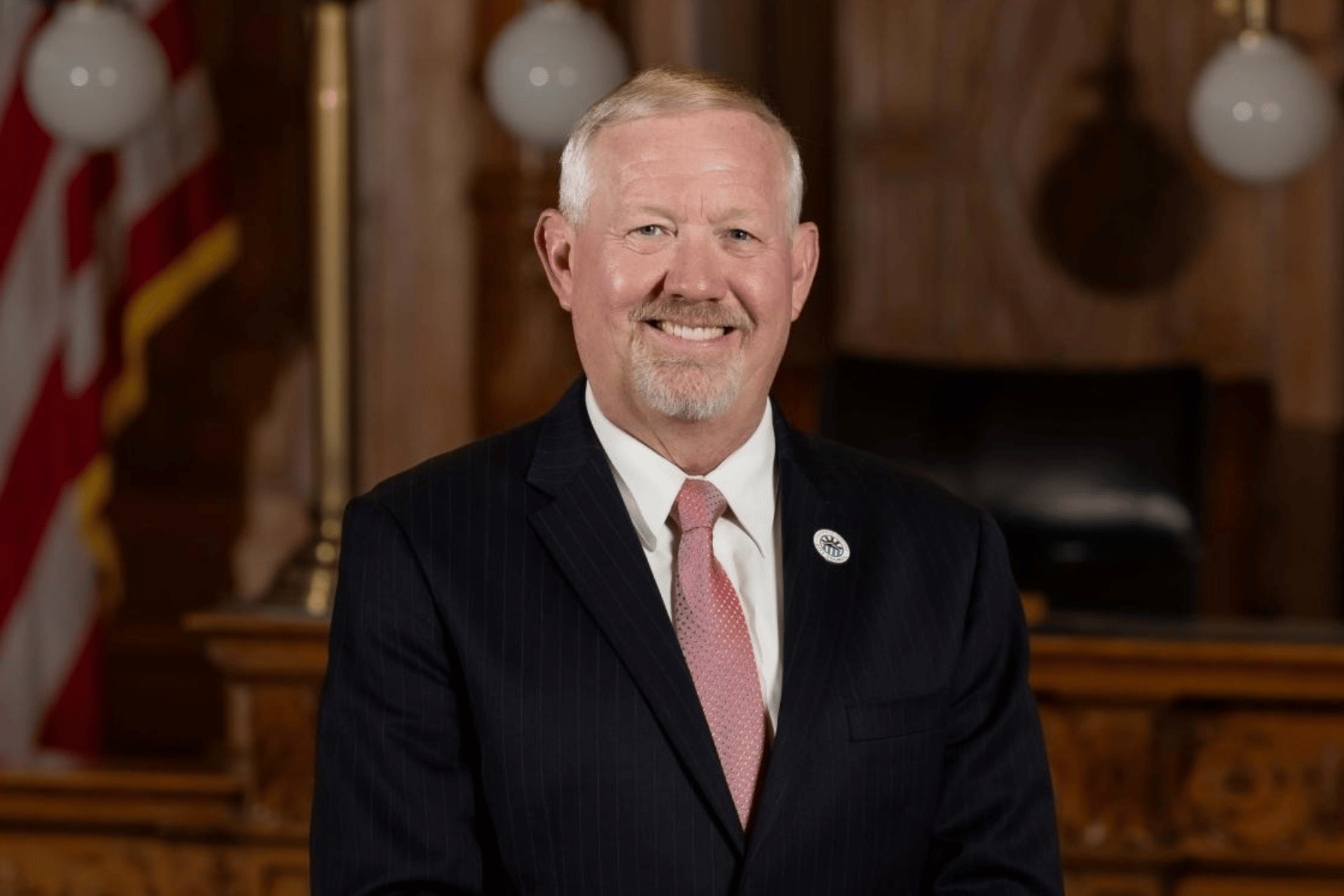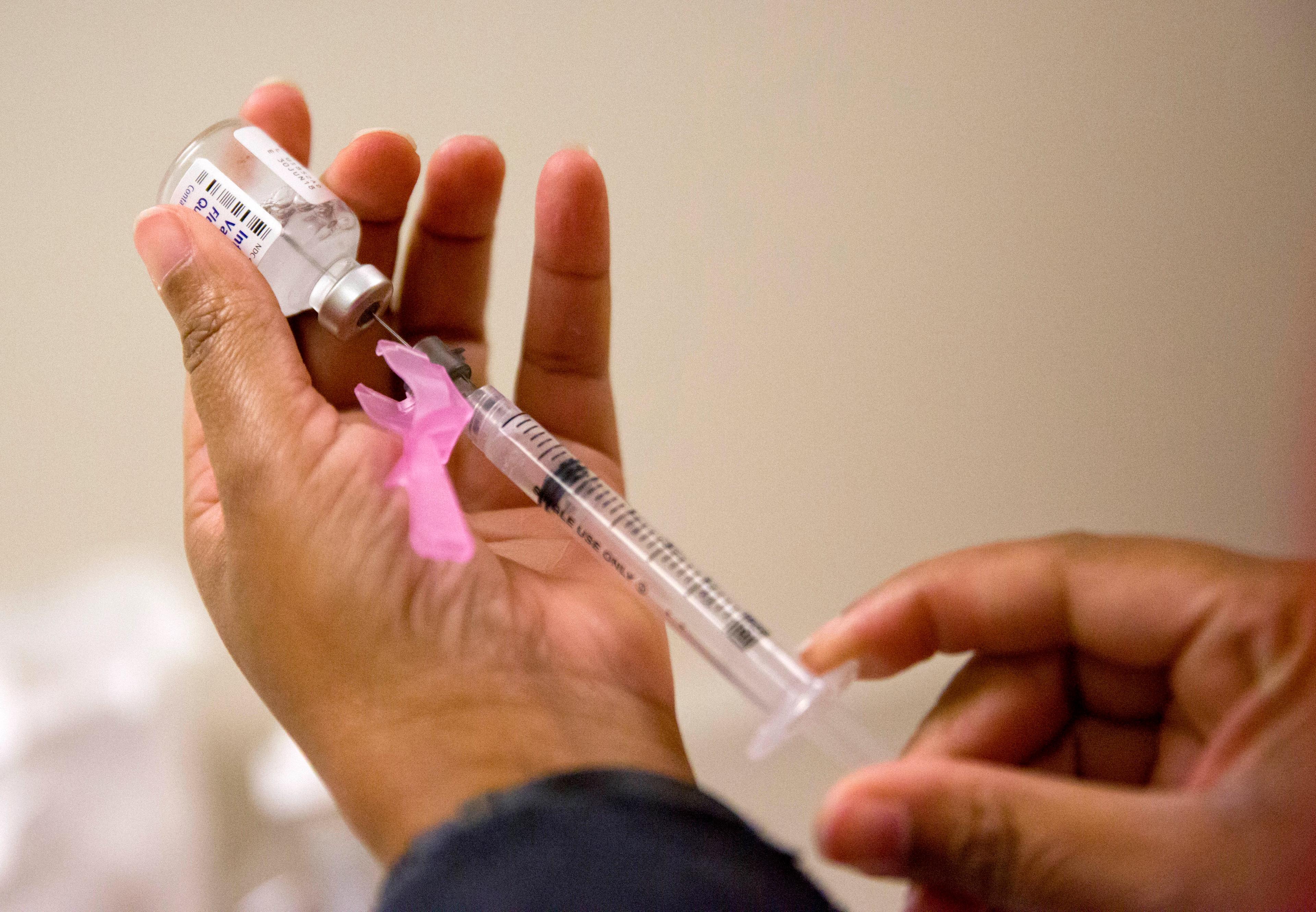
In Colorado, if you are critically ill and can't make medical decisions for yourself, no one can automatically step in to do so - not even your spouse or adult children.
That state law makes advanced planning especially important, says Dr. Hillary Lum, a geriatrician and associate professor at the University of Colorado Medical School. She recommends all adults identify someone to make decisions on their behalf, and address the kind of care they’d like - or not like - to receive. Dr. Lum says patients who have not made their wishes clear can end up in what’s called a “proxy process,” where medical staff tries to identify a decision-maker on their behalf.
Dr. Lum spoke with Colorado Matters host Chandra Thomas Whitfield about what Coloradans need to decide in advance, and how to bring it up with family members. Resources and documents can be found by clicking here.
Read the interview
This interview has been edited lightly for clarity and length.
Chandra Thomas Whitfield: I was surprised to learn this. Not even a spouse or adult children can automatically make medical decisions for someone who's incapacitated. Is Colorado unusual in that regard? How does that work here?
Dr. Hillary Lum: Colorado is very unusual. There is no one who automatically is the trusted decision maker that medical professionals will turn to.
Thomas Whitfield: If you haven’t legally designated someone, doctors start a proxy process. What is that?
Dr. Lum: The proxy process will happen when someone isn't able to make decisions for themself. Whoever the medical team is in charge, which may include social workers and others, let's say in a hospital, will seek to find out who might be someone who could step in as that proxy decision maker. They will use their best efforts to reach out to known contacts. That could be family, could be neighbors, could be individuals who are quite loose contacts- but say that there's a name somehow known to be associated- and the medical team will reach out to them.
Thomas Whitfield: It strikes me that if it gets to that point, this proxy process is out of the patient's control.
Dr. Lum: The proxy process is very much out of the patient's control. The proxy process is activated only when someone isn't able to speak for themself and therefore doesn't have capacity to weigh in on what matters to them.
Thomas Whitfield: And on the other side of it, someone is suddenly asked to make decisions, they may not be ready.
Dr. Lum: It can be very awkward or even a situation where there's conflict.
Thomas Whitfield: So what happens if they can't find anyone?
Dr. Lum: There's also a law in Colorado: if there's a situation where no proxy is able to be identified, then physicians who are not directly involved in care volunteer to serve then as the decision maker for that patient in that situation, as the last resort.
Thomas Whitfield: As a doctor, you've been there. Describe a situation you've seen when there was no planning, and things didn't go so well.
Dr. Lum: There can be conflicts among those who are closest involved to the person, and each of those parties may know the person in a different way. And when there haven't been planning conversations over time with everyone having an opportunity to be on the same page, in the moment there can be conflict among people who otherwise are not in conflict. This emotional situation can really bring up that we didn't realize that we weren't on the same page.
Thomas Whitfield: I'm thinking about many people who can't even agree on dinner, and now you're asking them to make such a huge decision. What's the document you sign if you want to be clear that ‘this is the person I want to make decisions for me?’
Dr. Lum: Here in Colorado, I recommend for everyone age 18 and older to identify who they would trust as a medical durable power of attorney. And that's the form that we recommend. It’s sometimes called the MDPOA. And in Colorado, that can be completed at home, in the doctor's office, or with an attorney - and it does not need to be witnessed or notarized. In Colorado, we've really tried to make it as accessible as possible for individuals to complete that medical durable power of attorney form.
Thomas Whitfield: Where does one keep this? Does it have to be available online? Or how would one find this or store this?
Dr. Lum: We really encourage that individuals have a copy for themself readily available, not in the safety deposit box, and that they also share copies with both who they've chosen as their decision maker, as well as potential other individuals who would value knowing that information. Again, trying to think about how to prepare your family of choice, and avoid or try to reduce conflicts that may happen. And then also I recommend bringing a copy to your usual healthcare team.
Thomas Whitfield: So you do not need a lawyer involved in this?
Dr. Lum: You do not.
Thomas Whitfield: The next step of planning feels harder to me. It's deciding what kind of care you want and doing that in advance without knowing the specifics of the situation. What types of issues should people be thinking about and planning for?
Dr. Lum: I think this part of advanced care planning - where individuals are considering what type of medical treatment they would want, aligning with who they are as a person - it really matters what your life looks like. It matters what your values are. It also matters what your overall health is. I'm a geriatrician, so I see individuals who are sometimes experiencing multiple conditions, maybe a serious illness diagnosis. One key point is that the decisions and advance planning that individuals will make when they know they have specific diagnoses will be different than when someone doesn't have those diagnoses. And that's also a recommendation then to initiate conversations with a doctor or trusted healthcare provider. Because I think as individuals we need to know what might happen, what the potential treatment options are, and we shouldn't be trying to make those advanced planning decisions in a vacuum without medical information. For instance, if someone has a new diagnosis of heart failure, it's very difficult to think about what type of future planning or future interventions in the hospital might be helpful or not, without talking about that with a medical provider.
Thomas Whitfield: If you want to write these decisions down, what is the document called? I hear so many references to documents like a living will or an advanced directive.
Dr. Lum: Yes. And then probably also the Five Wishes. There are many different terms and we know that it's confusing. I have patients who ask,”What's the right document? I want to make sure I'm covered.” A living will, an advanced directive, and a Five Wishes are examples of a way of sharing in advance preferences related to life sustaining treatments. If you have one of these documents, it's really important to share it with your doctor, your healthcare team. Because often as the clinician, I want to ask, “Okay, I see this document written down. What does this mean to you? What did I know about you based on what you've written down in this document?” And I think that's that aspect of “living” will.
Thomas Whitfield: I think one thing people worry about is, “What if I change my mind?” Do you see that happen a lot? How is that handled?
Dr. Lum: Changing one's mind happens all of the time, and I actually think that when we can expect that, that can actually reduce some of the distress and some of the painfulness that can happen with these conversations. If we accept that that happens, I think that helps us to circle back to what are the most important values that might be then linked to the new decision or what might be perceived as a change.
Thomas Whitfield: And these forms you talked about are available on your website?
Dr. Lum: The forms are available on many websites and in hospitals and clinics. Our team has developed a website called coloradocareplanning.org. We set it up to hopefully have an opportunity for individuals to use as a roadmap of what we've been talking about today: where to start these conversations, what forms to consider, and how to take next steps.
Thomas Whitfield: Earlier you mentioned that this is all relevant to those age 18 and up. How do you know when it's time to really sit down and do this? I hear people say all the time, “I feel like I'm too young to plan for these issues,” and I'm guessing you disagree?
Dr. Lum: I disagree and I think that one way to answer this is: have these conversations whenever you feel ready. These conversations are always something that we should do voluntarily. And, as the health system we're trying to build in opportunities. So, the first time that you are meeting with a new doctor or practitioner, or the welcome to Medicare visit. Or the annual Medicare wellness visit also incorporates a check-in related to advanced care planning. So for each person, it's going to be different. I certainly recommend it for individuals over 18, because even a 19-year-old, it will not automatically go to someone who they're related to.
Thomas Whitfield: I want to switch perspectives for a minute and stand in the shoes of the person who's being asked to make these medical decisions for a family member or maybe even a friend. How can you be prepared to take on that responsibility? It's a big one.
Dr. Lum: It is a big one. And I think many of the ways that people step into this role of being a surrogate decision maker is often by prior experience. So that's the main training that is readily available is: having lived through it before or seeing someone else live through it. So therefore, I think that support groups can be a space to try to proactively think about: what will it be like to be a trusted decision maker for someone. Also, there are internet-based, evidence-based tools to help individuals prepare. I think a natural way is to ask increasingly, “Can I go with you to medical visits? Would you be able to give me proxy access to a patient portal,” for instance. And that also helps that surrogate decision maker to be journeying with the person and be involved, rather than a sudden need.
Thomas Whitfield: You recently hosted a free webinar sharing information with the public on how to, well, plan for advanced planning. What are some of the questions you heard a lot?
Dr. Lum: We had such fun hosting the National Healthcare Decisions Day webinar on April 16th. Nothing is sure in life except death and taxes. So that's why they pick April 16th. I think one of the questions that stands out to me was someone thoughtfully asking, “What if I don't have someone who I can choose as a medical durable power of attorney?” So circling back to that conversation, if you don't choose someone, there's going to be a proxy process. There are some individuals who are quite worried about who could speak for them when decisions are needed. And I really appreciate that question. Hopefully individuals can bring it up with their doctors and their teams so that we can brainstorm together. I think sometimes we have a narrow view of who could be a decision maker, thinking it has to be someone who is biologically related to us. And so having the opportunity to brainstorm and think about, well, who might you rely on for another aspect of your life? What about opening up this conversation so that maybe you could invite them into the medical aspect.
Thomas Whitfield: One of the most difficult questions for everyone has to be, how do we bring this topic up? Any suggestions?
Dr. Lum: I think that each family does this in different ways, each person does this in different ways. I've heard examples of when a celebrity in the news passed away, using that. It's at a distance. “What did you think about that?” Or hearing that someone on the news, or a neighbor in a community, made a choice for hospice. Sometimes starting with the at-a-length conversations can then be a way in. Other individuals might be quite straightforward and say, “It's Thanksgiving, we're going to discuss it now- we're all gathered here, and this is important.”
Thomas Whitfield: Turkey and hot topics?
Dr. Lum: Turkey and hot topics! So I really encourage people to embrace what is possible for them, recognize that it's different for everyone. And also know that your first attempt at bringing it up may be small. You may not have accomplished what you hoped to actually bring up. And that is definitely okay and spend a little time reflecting on that and don't give up. Seek to bring it up again.
This story is a part of Aging Matters, a series from Colorado Matters about the Centennial State's aging population. Read more stories here.









